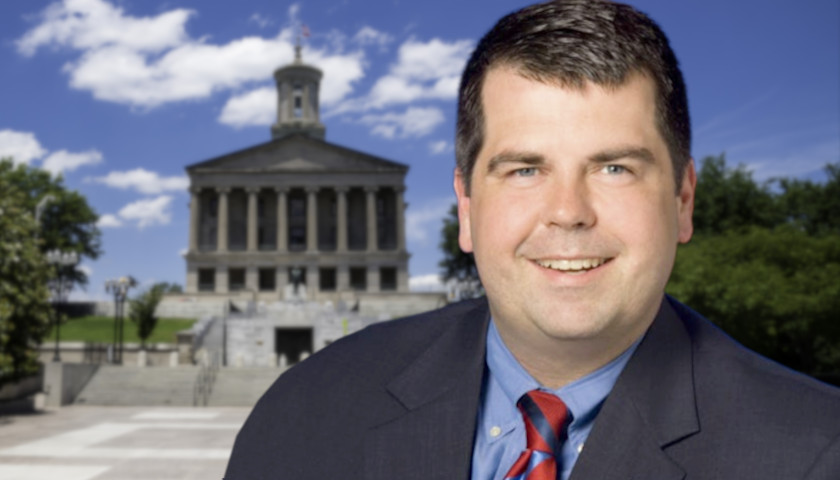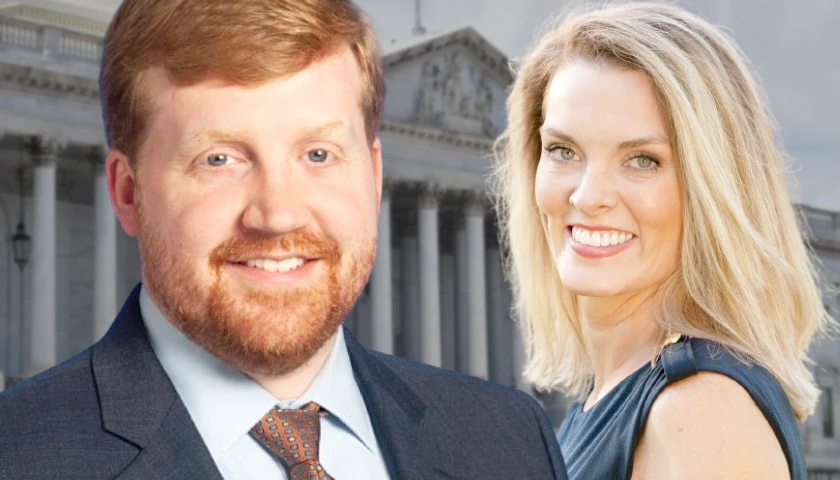Nashville Democratic State Representative Bo Mitchell filed HB 1550 on August 21 in a move that would delete the Tennessee Education Savings Account (ESA) Pilot Program.
The ESA Pilot Program passed through the state legislature during the first session of the 111th General Assembly in 2019, and was the signature piece of legislation of newly-elected Governor Bill Lee.
Lee talked about education choice on the campaign trail, as something that was on his heart due to his personal experience mentoring a young man.
Lee was the victor in what was essentially a four-way Republican primary, capturing 37 percent of the vote and nearly 100,000 more votes than his closest rival.
While there were many iterations of the bill as it made its way through the legislative process, largely to gain as much support as possible, Education Savings Accounts were enacted as a Pilot Program under Tennessee Public Chapter No. 506.
The Program is voluntary and its enrollment is limited to a total of 5,000 students in the first year and increasing by 2,500 students per year to a total of 15,000 students in the fifth and subsequent years of the Program. The enrollment level will not increase to the next level unless and until 75 percent of the maximum number of students have enrolled in the Program.
Eligible student participants must, among other stipulations, have documented evidence of a household annual income that does not exceed twice the federal income eligibility guidelines for free lunch.
The ESA Pilot Program is also limited in its scope to the two districts of Metro Nashville Public Schools and Shelby County Public Schools, both of which meet the criteria of having 10 or more priority schools and among the bottom 10 percent of schools.
The Tennessee Department of Education Report Card tracks the percentage of students performing on grade level through TNReady or TCAP state exams, as well as other performance indicators. A portion of the data available for the 2017-2018 school year is presented below, comparing the overall performance at the state level to that of the two school districts participating in the ESA Pilot Program.
State / Metro Nashville Public Schools / Shelby County Public Schools
Success Rate – 39.1% / 27.4% / 24.8%
Mathematics – 33% / 21.9% / 19.6%
English Language Arts – 32.8% / 24.7% / 20.4%
Science – 54.8% / 37.9% / 37.5%
Social Studies – 37.7% / 26.1% / 21.1%
Ready Graduate – 35.8% / 23.6% / 17.7%
Average ACT Composite Score – 20.1 / 19 / 17.8
CTE Concentrators – 40% / 41.5% / 20.7%
Graduation Rate – 89.1% / 80.3% / 79.6%
Dropout Rate – 1.7% / 3.2% / 3.1%
Meanwhile, Metro Nashville Public Schools had $13,376.35 per pupil spending and Shelby County Public Schools had $13,376.35 per pupil spending in the 2017-2018 school year, compared to the state average of $10,340.26, according to the Report Card.
The Pilot Program allots an amount equal to the amount following the student in the ESA, set at $7,300, back to the Local Education Agency (LEA) in the way of a school improvement grant. In effect, the LEA with students utilizing an ESA will receive a higher amount of state funding per student.
Despite this, primarily Democratic members of the General Assembly opposing the ESA Pilot Program argued mainly on the basis of funding and not the interest of students.
Of course, the state chapter of the teachers’ union, Tennessee Education Association opposed the legislation.
In addition, strong opposition came from the Tennessee Organization of School Superintendents (TOSS) and the Tennessee School Board Association (TSBA), both of which are funded by membership dues paid for by taxpayer dollars, the latter having more than $5 million in assets and paying its top executives nearly a half million dollars, as The Tennessee Star reported.
Meanwhile, the party of the super majority clearly supports school choice and the mechanisms to enable it.
The national Republican Platform ratified in 2016 specifically endorses ESAs, “We especially support the innovative financing mechanisms that make options available to all children: education savings accounts (ESAs), vouchers, and tuition tax credits.”
The Tennessee Republican Party sent a personalized email message days before the House Education Committee was set to vote on the ESA measure rallying statewide support for the plan, The Star reported.
The state’s efforts to offer school choice caught the attention of President Trump’s after the dramatic House vote and before the Senate vote.
The President tweeted, “The Great State of Tennessee is so close to passing School Choice. All of our Nation’s children, regardless of background, deserve a shot at achieving the American Dream! Time to get this done, so important!”
The Great State of Tennessee is so close to passing School Choice. All of our Nation’s children, regardless of background, deserve a shot at achieving the American Dream! Time to get this done, so important!
— Donald J. Trump (@realDonaldTrump) April 24, 2019
The ESA Pilot Program, in its final form developed through a Conference Committee, passed the Senate with a 19-14 vote and the House with a 51-46 vote.
Despite the ESA Pilot Program not impacting most of their districts, there were nine Republican Senators and 19 Republican Representatives who voted against the measure.
Former Speaker Glen Casada (R-Franklin) was a strong proponent of the ESA legislation. It could be argued that it would not have passed without his influence in committee and then breaking the tie vote on the House floor. There has since been claims of wrong-doing on the part of Casada in order to gain the votes.
Newly-elected Speaker Cameron Sexton voted against the measure.
In the organization’s newly-launched Tennessee State Legislative Scorecard, Club For Growth Foundation examined legislator’s votes relative to pro-economic growth policies. Expanding school choice is one of Club For Growth’s policy goals and the Education Savings Accounts legislation as HB0939 was selected as one among the 14 bills Club for Growth Foundation scored, as The Star reported.
The Education Savings Account Pilot Program is required by law to begin no later than the 2021-2022 school year.
– – –
Laura Baigert is a senior reporter at The Tennessee Star.






[…] As reported, Lee talked about education choice on the campaign trail as something that was on his heart due to his personal experience mentoring a young man. […]
Of course the Dumocrats don’t want school-choice, they want all of the citizens dumbed down and suckling on the government teat. So, kids don’t get a proper education, teachers get abused, neglected and under paid, and all the while school administration (aka government bureaucracy) spiral upwards, as citizens get to pay the bill!
This process will be interesting, for citizens will now get another glimpse as to which representatives are truly representing them or the “special interest groups” like TOSS, TSBA and TEA.
This article would be greatly improved if Rep. Mitchell’s rationale had been solicited – particularly since he is seeking to delete a pilot program that hasn’t even begun. Does he object to some specific provisions of the act and did he present those arguments during the course of the debate? Likewise, what was Rep. Sexton’s objections to the bill? Since he is now Speaker of the House, that would be very valuable information to have. Perhaps a synopsis of the debates, at both chambers, might be useful.
Public schools typically represent a major employer. In Rep. Sexton’s district (overlapped by Sen. Bailey’s), it is the largest employer. So, despite their ostensible conservative credentials, they both voted against the bill. Why? What was their rationale?
This is not surprising, and supporters of school choice should expect more of this as well as other actions to undermine the program. For example, Section 49-6-2606 provides the annual administration of the Tennessee Comprehensive Assessment Program (TCAP) tests for math and English. How many public school teachers “teach to the exam” simply because that’s the basis on which their performance is evaluated? So an alternative, simply to be competitive, must do the same and/or provide a more comprehensive educational basis.
Likewise, alternative schools and parents participating in the program are subject to considerable scrutiny lest the funds be spent on any expenses not authorized. Since the parents eligible to participate in the program are low income, it is safe to assume that they will not have the wherewithal to withstand a legal challenge. Nonprofit organizations are authorized to assist the Department in administering this program; how many of those nonprofit organizations will be co-opted by the various teacher’s unions?
School choice faces the same management dilemma as any other: do you spend your time and energy on the 20% who are not performing in order to bring them up to the minimum standard, or do you direct that time and energy on the 80% who are performing in order to encourage further improvement?
It’s a worthy program to at least try – does the opposition to the program simply want to keep its recipients dependent on public assistance, from one generation to the next? Understandable, since that is their core constituency. Likewise, the teachers unions typically donate funds to the campaigns of those officials and candidates that subscribe to their agenda – also understandable.
What is their alternative? More of the same programs that have proven so dismal in the event? Continue to fail both the student and their family? Apparently so.